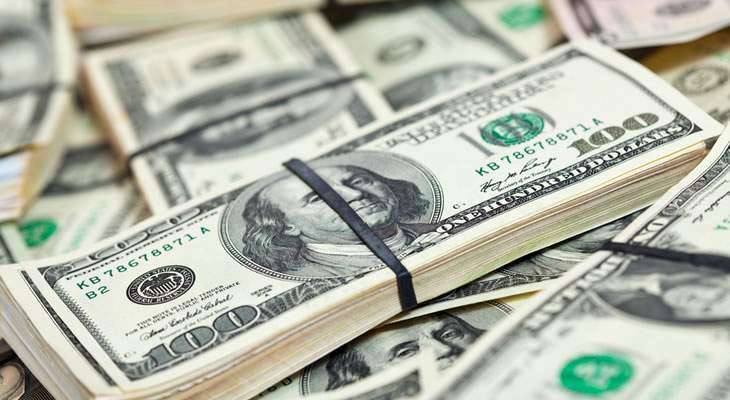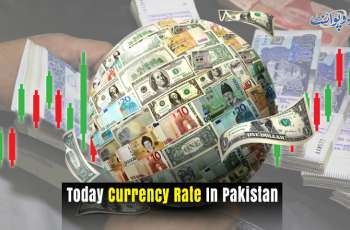Russia and the European Union are unlikely to switch from the US dollar (USD) to their respective currencies in trade despite the officials from both sides voicing plans to do so, experts told Sputnik
BRUSSELS (Pakistan Point News / Sputnik - 17th June, 2019) Russia and the European Union are unlikely to switch from the US Dollar (USD) to their respective currencies in trade despite the officials from both sides voicing plans to do so, experts told Sputnik.At a Thursday meeting in Moscow, Russian Finance Minister Anton Siluanov and Vice-President of the European Commission for the Energy Union Maros Sefcovic agreed on the need to move away from US-dollar-denominated trade deals and use the Russian ruble and the euro instead, including in energy deal transactions.
A spokesperson for the European Union, however, told Sputnik on Friday that "even today between Russian and European companies, 90 percent of the deals, contracts and quotes are made in US Dollars."
OLD IDEA UNLIKELY TO BE REALIZED SOON
Etienne de Callatay, chief economist at Orcadia Asset Management in Luxembourg, praised the idea of boosting use of the euro and ruble in trade.
"This is an old idea that is emerging regularly, especially during conflicts in the middle East, for example during the last Iraq war or the Libyan regime change. Replacing the dollar as international Currency with other currencies, or rather enlarging to other currencies is basically a good idea. It is silly to have the buyer and the seller running a currency risk because they trade in the currency of a third country, in this case the United States. That said, being the reference currency, as is the USD, also has drawbacks for the USA," de Callatay told Sputnik.
At the same time the economist doubted that this idea may be implemented in the near future.
"I am afraid the US dollar will remain for a very long time the currency for the great majority of transactions around the world especially in sectors like aeronautics or energy products, even if the European Commission would very much like to break the dominance of the dollar in global markets," he added.
Professor Samuele Furfari of Free University of Brussels echoed de Callatay, expressing doubts that Russia and the European Union would manage to boost trade in national currencies in the near future.
"Here, it is a good idea for Russian and European companies to avoid the risk by denominating their transactions in RUB or EUR, especially since energy contracts are usually long-term contracts. Practically, they can include indexation clauses in the contracts on prices or changes. But this will not be done in an instant," Furfari told Sputnik.
He added that the issue had been discussed for years but very little had been done so far to reduce the power of the US dollar in the international arena.
The predominant position of the US dollar in the world was anchored in the 1944 Bretton Woods Agreement, which tied the US currency to gold. Transformation of the Bretton Woods System into the Jamaica System in the 1970s, which switched the global economic system to using floating exchange rates, has not undermined the global positions of the US dollar.
Over the past few years, however, more and more countries across the world, including Russia, China, India and Turkey have been seeking ways to reduce dependence on the US dollar, not only due to certain exchange risks of using a third country's currency in trade but also loss of trust in it in light of Washington's economic and financial restrictions against nations across the world.
It is noteworthy that one of the goals of Jean-Claude Juncker's European Commission, whose mandate expires in October, was to challenge the dollar's dominance and thereby reduce the bloc's dependence on a single global currency.
The INSTEX mechanism, set up by France, Germany and the United Kingdom as a euro-denominated clearing house to continue trade with Tehran in the face of US sanctions, which were reinstated after Washington's unilateral withdrawal from the Iran nuclear deal, could have been actually seen as another part of such efforts.
However, four months after the structure was created, it has not been properly put into action, with a corresponding entity that will conduct such transactions is yet to be set up in Iran.
Once operational, the mechanism will focus on facilitating trade in agricultural, pharmaceutical and medical products. This should mitigate the risk of US sanctions, but Washington has already warned that it will keep an eye on the sanctions workaround.
INSTEX is expected to be based in Paris and managed by experienced German banking expert Per Fischer, a former senior manager at Commerzbank, while a UK diplomat will head the Supervisory board.
There is still however no INSTEX website, no functioning secretariat that we know of and no communication team. All there is the indication of an existing physical address in the center of Paris Rue de Bercy 139 (the address of the French Ministry for Economy and Finance).
The helplessness of the three EU nations, which became the INSTEX shareholders, therefore shows that the EU economy has so far turned out to be less shielded from US restrictions compared to those of China and Russia.
For most observers, the instrument will hardly ever function. Earlier in June, German Foreign Minister Heiko Maas declared in Tehran that Europe had been doing its best, noting that the task was complex.
It will be indeed very difficult to persuade large European businesses to take the risk of angering the United States. It is therefore not tomorrow that the euro, despite its potential, will rise to the level of the US dollar in international trade.




